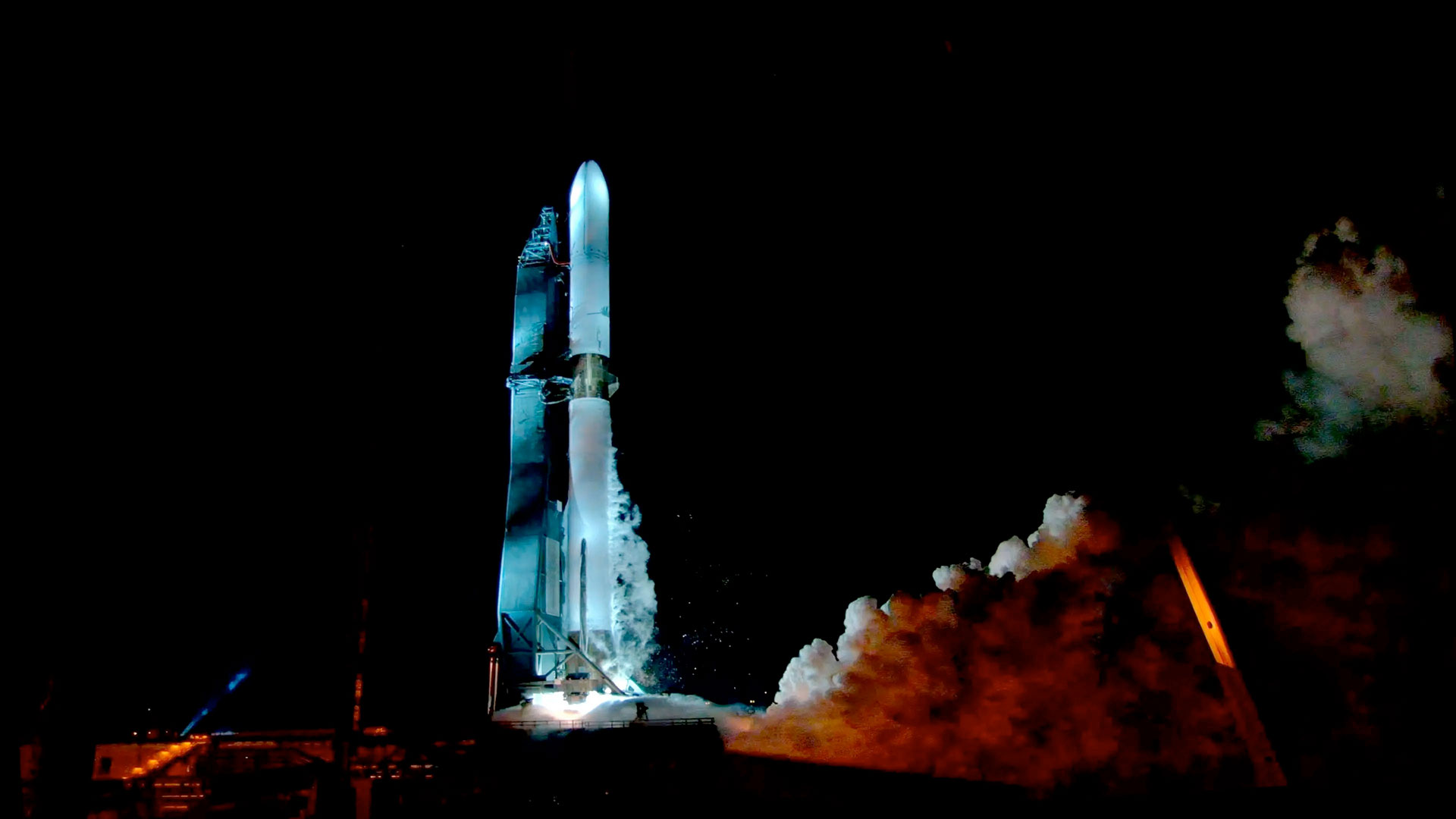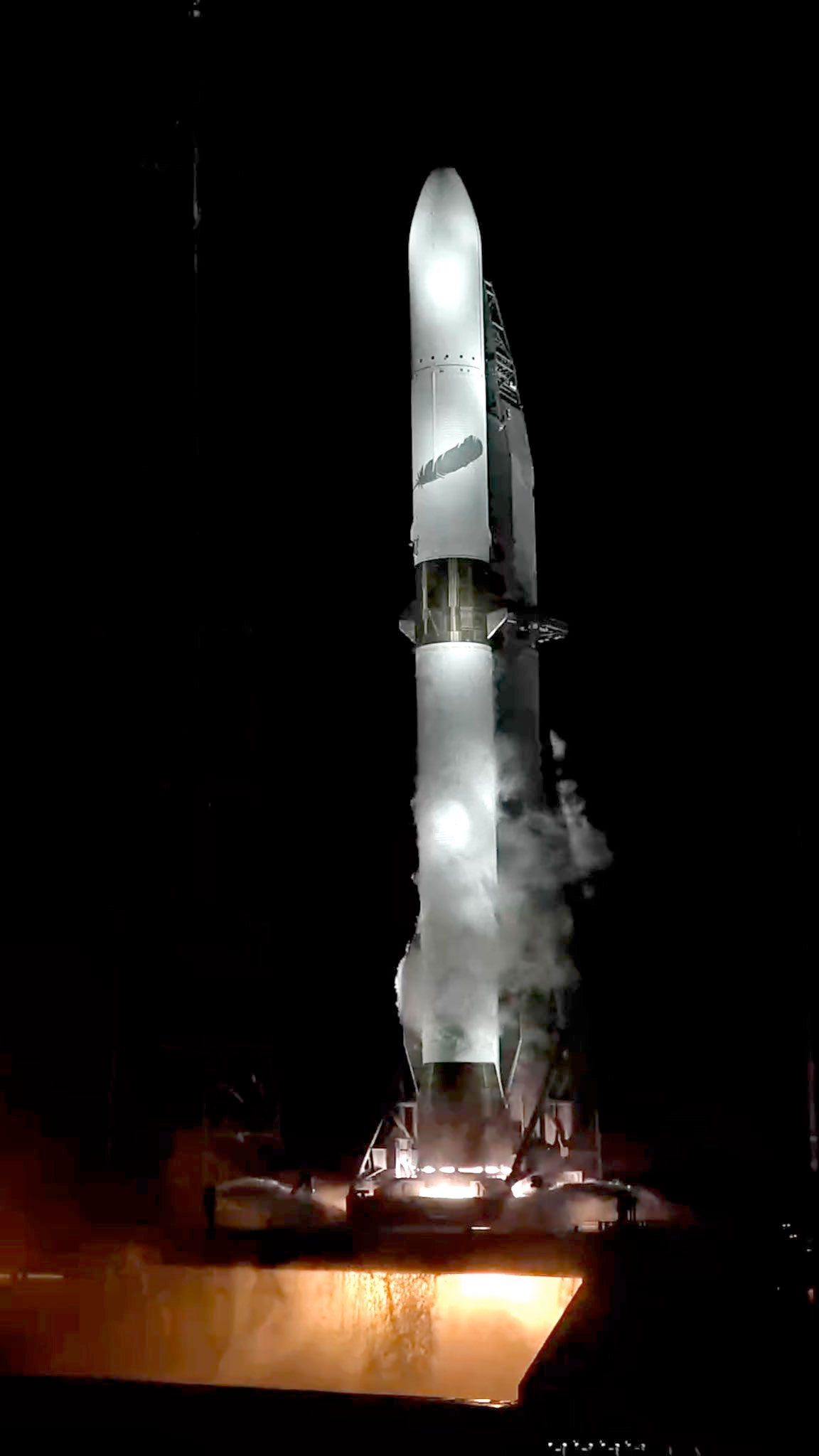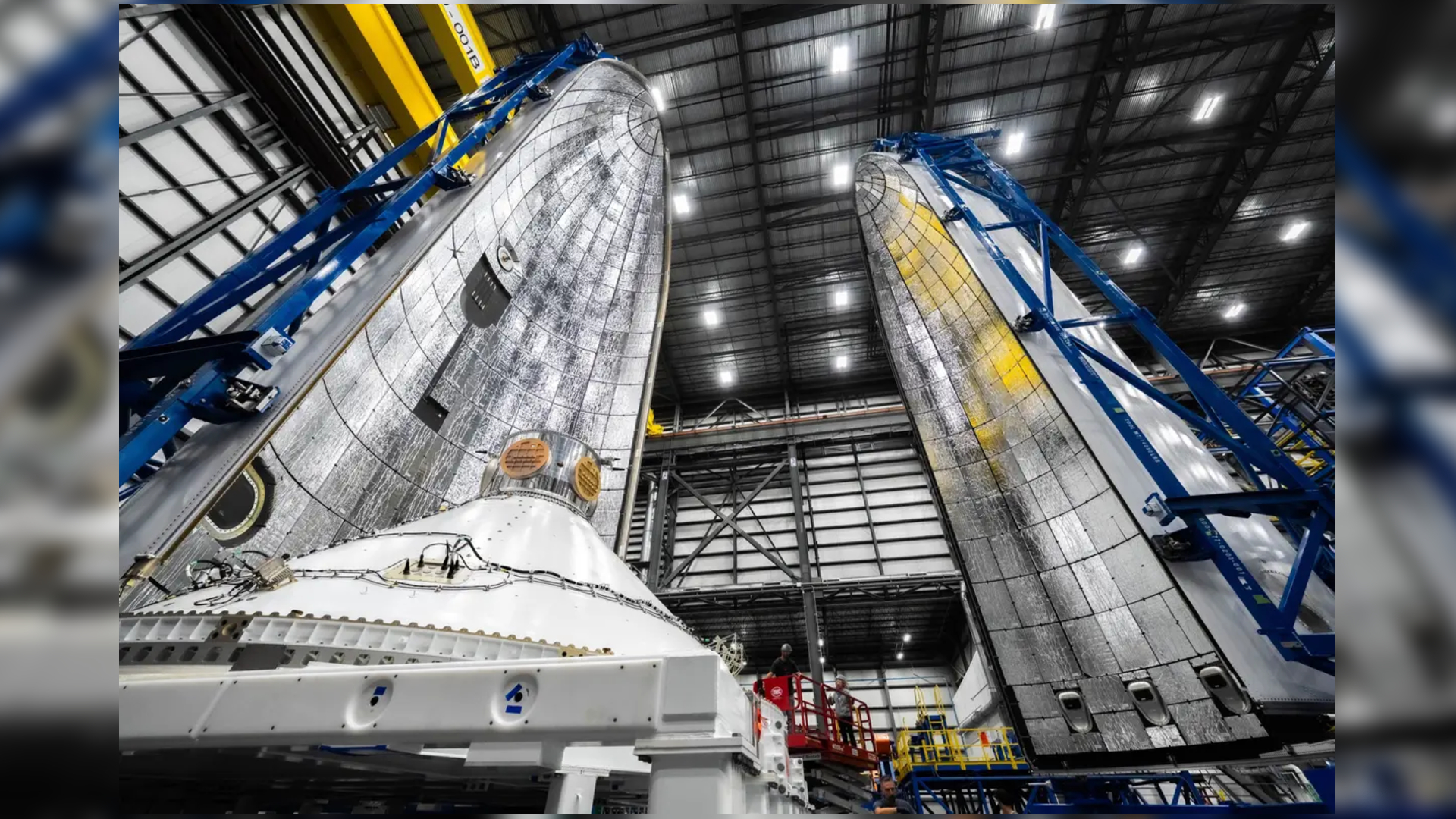Blue Origin hot fires New Glenn rocket for first time and scores FAA license for test launch
The hotfire was completed just hours after the FAA gave clearance for New Glenn's first launch

Blue Origin fired up its new heavy-lift orbital rocket for the first time just hours after receiving federal clearance to conduct its maiden launch.
Standing atop Launch Complex 36 (LC-36) at the Cape Canaveral Space Force Station in Florida, the company’s New Glenn rocket conducted a successful 24-second seven-engine hotfire on Friday night (Dec. 27). It was the first time that the entire launch vehicle operated as a integrated system.
"This is a monumental milestone and a glimpse of what's just around the corner for New Glenn's first launch," said Jarrett Jones, Blue Origin’s senior vice president for New Glenn, in a statement. “[This] success proves that our rigorous approach to testing — combined with our incredible tooling and design engineering — is working as intended."
The static firing of New Glenn’s first stage BE-4 rocket engines concluded a multi-day test campaign that included inert functional and tanking tests. The vehicle was configured with the first and second stages it will use on its first test flight, NG-1, and a payload test article made-up from manufacturing test demonstrator fairings, a high-capacity fixed adapter flight unit and a 45,000 pounds (20,400 kilograms) payload mass simulator.
NG-1 will carry the Blue Ring Pathfinder, a demonstrator for Blue Origin’s multi-mission space mobility platform designed to deliver payloads to geostationary orbit (GEO), cislunar and interplanetary space destinations.
“Well, all we have left to do is mate our encapsulated payload... and then LAUNCH!” wrote Dave Limp, Blue Origin’s chief executive officer, on the social media network X on Friday.
Blue Origin's billionaire founder Jeff Bezos agreed.
Get the Space.com Newsletter
Breaking space news, the latest updates on rocket launches, skywatching events and more!
"Next stop launch," Bezos said on X.
Next stop launch pic.twitter.com/GQFz4XxEt5December 28, 2024

The hotfire test proceeded just hours after the FAA (Federal Aviation Administration) issued Blue Origin a commercial space license authorizing the first launch of New Glenn. The FAA determined the company met all safety, environmental and other licensing requirements.
“The license allows Blue Origin to conduct orbital missions from the Cape Canaveral Space Force Station in Florida with the reusable New Glenn first stage landing on a barge in the Atlantic Ocean. It is valid for five years,” read a statement on the FAA’s website.
Standing more than 320 feet (98 meters) tall, the New Glenn features a reusable first stage designed to fly 25 missions. The stage’s seven BE-4 engines are the most powerful liquid oxygen (LOX) and liquefied natural gas (LNG)-fueled oxygen-rich staged combustion engines ever flown. (In addition to powering New Glenn, Blue Origin’s BE-4 engines are also used by United Launch Alliance for its Vulcan rocket.)

"Get this – a single BE-4 turbopump can fit in the backseat of a car. When all seven pump fuel and oxygen from the BE-4's common shaft, they produce enough horsepower to propel two Nimitz-class aircraft carriers at full tilt," wrote Limp.
The hotfire and its associated test campaign set a number of firsts for the New Glenn launch system, including the first seven-engine operations, the first integrated tanking demonstration, the first LNG/LOX fill for the first rocket’s first stage, and the first chilled helium operations for the second stage.
A launch date for the NG-1 mission has yet to be announced, but is expected soon. Assuming a successful first flight, Blue Origin is poised to begin New Glenn launches for NASA, Amazon's Project Kuiper, AST SpaceMobile, several telecommunications providers and a mix of U.S. government customers. The company is also certifying New Glenn with the U.S. Space Force for the National Security Space Launch program to meet national security objectives.
Join our Space Forums to keep talking space on the latest missions, night sky and more! And if you have a news tip, correction or comment, let us know at: community@space.com.

Robert Pearlman is a space historian, journalist and the founder and editor of collectSPACE.com, a daily news publication and community devoted to space history with a particular focus on how and where space exploration intersects with pop culture. Pearlman is also a contributing writer for Space.com and co-author of "Space Stations: The Art, Science, and Reality of Working in Space” published by Smithsonian Books in 2018.In 2009, he was inducted into the U.S. Space Camp Hall of Fame in Huntsville, Alabama. In 2021, he was honored by the American Astronautical Society with the Ordway Award for Sustained Excellence in Spaceflight History. In 2023, the National Space Club Florida Committee recognized Pearlman with the Kolcum News and Communications Award for excellence in telling the space story along the Space Coast and throughout the world.
-
Dave Michelson Blue Origin has been working towards this important milestone for a very long time. Congratulations to the entire team on reaching this point, and best wishes for a very successful debut launch!Reply -
Unclear Engineer There is a lot of hype and argument about whether the initial launch will occur before the end of the year. But, that is just not important. December 31st of 2024 is not much different from January 31st of 2025, in the larger scheme of the development project.Reply
The important thing is how successful Blue Origin will be in its first mission. It seems to include landing the first stage on a barge at sea. And, of course all of the engines and stages need to work as designed.
The big issue is the comparison of the "slow and sure" development process to the competing "try early, fail fast and learn fast" approach that SpaceX has been demonstrating successfully.
If New Glen meets all of its design parameters on its first launch, then it will show Blue Origin to be a serious competitor in the launch business. But, if there is more than a minor glitch, it will not seem to be a serious competitor for at least a substantial time into the future.
All that said, I am rooting for a compete success.
